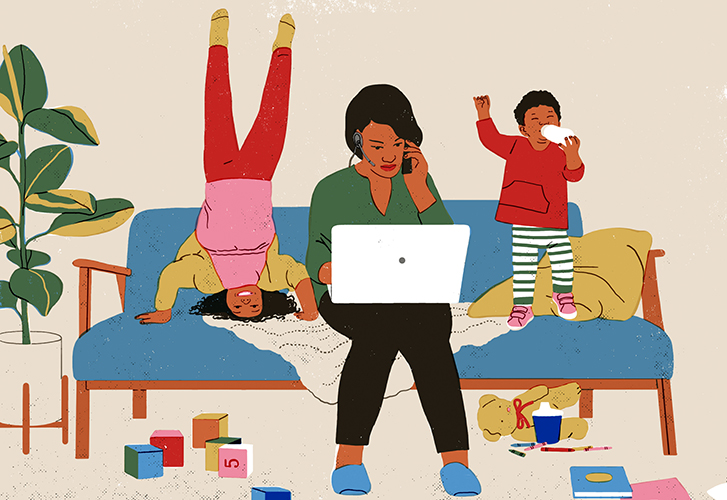Poverty among women: the precarious balance of work and family life. M. José González
Poverty among women: the precarious balance of work and family life. M. José González

Despite the increase in women’s participation in the labour market, especially by women with children, gender inequalities are most stubborn. Women have more limited access than men to financial resources, and society still has much higher expectations of women as households’ primary caregivers and domestic workers. This reality translates into a whole series of very worrying indicators of women’s poverty and social exclusion.
If we look at monetary indicators in Catalonia we can see, for example, that on average women earn 13.3% less per hour than men (2018). If we look at indicators concerning the labour market, we find that 43% of women (aged 16 and older) are inactive (3rd quarter of 2021), of whom 28% refer to the need to attend to domestic work and give care in households as the main reason.[i] Inactivity in their male counterparts is lower, at 34% (9 points lower), and of these men, only 5.1% alludes to household tasks as their main reason.
Other indicators of gender inequality in the labour market are, for example, the fact that women are overrepresented among part-time workers (19% of women and 6.5% of men aged 16 and older work part-time according to data from the third quarter of 2021)[ii], women do less overtime, have shorter working hours (the average weekly hours dedicated to paid work is lower than for men), suffer more interruptions in their employment, take more full-time leave for the care of children than men, and are overrepresented among workers with reduced working hours for care-related reasons (Fernández Kranz 2018).
The reality is that women continue to make more adjustments to their employment in order to balance paid work with domestic and care tasks, while men concentrate on paid work and dedicate themselves to their careers. This inertia, whose roots lie in the persistence of traditional gender values, has also become evident during the covid-19 social and health crisis. The social and economic shock of the pandemic, unprecedented in recent history, could have been a unique opportunity for men to become more involved in certain domestic and care tasks. Studies reveal that, indeed, they have become more involved, but always less so than women. Women, while keeping their paid jobs, have assumed a greater burden of responsibilities and have fully suffered the stress and distress of the “triple burden” (employment, domestic and mental).
The reality is that women continue to make more adjustments to their employment in order to balance paid work with domestic and care tasks, while men concentrate on paid work and dedicate themselves to their careers
In short, women live in a constant “precarious equilibrium” to reconcile family responsibilities and participation in the labour market, largely because men get involved little or not at all and institutions do not offer much help either. This is the main idea expressed in the report drafted by the author, recently published by the Bureau of the Third Social Sector of Catalonia, which can be consulted online at this link: report.
In the last section of the report, the author refers to the need to implement urgent policies around five major axes: the rationalization of working hours and working days; the elimination of family policies without wage compensation; the creation of more paid leave to meet family care needs; the increase in public investment to combat child poverty (quality public schooling for children under 3 years of age and free school meals and materials); and the creation of incentives for the recruitment and regularization of home caregivers and domestic workers.
[i] Data from the INE: https://www.ine.es/jaxiT3/Datos.htm?t=4261.
[ii] Data from the INE: https://www.ine.es/jaxiT3/Datos.htm?t=4235).
Fernández Kranz, D. (2018). La brecha de género en España y el contrato de reducción de jornada por cuidado de menores. Cuadernos de Información Económica, 46.
